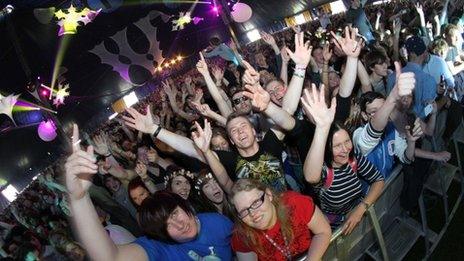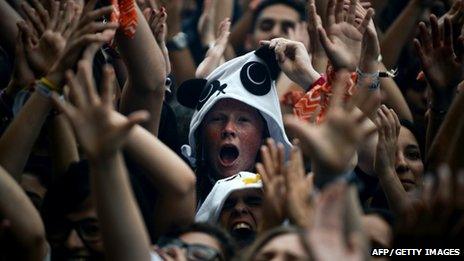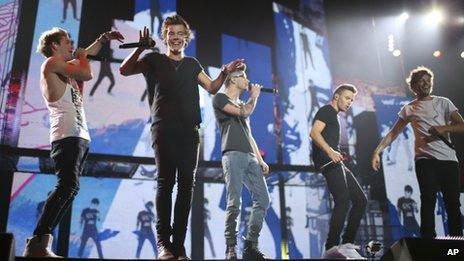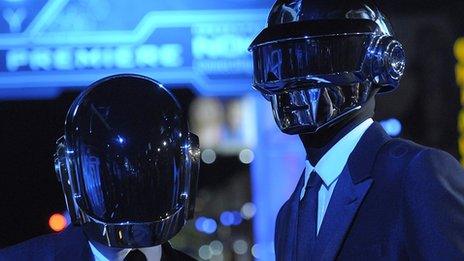Music piracy 'rises' after festivals, says Spotify study
- Published

Festivals cause a rise in online music piracy, research from Spotify suggests.
The findings appear to show that festivals increase demand for artists' music, but that festival-goers mainly sample through unauthorized channels.
"Our analysis uncovered some examples of torrents spiking immediately after festival performances," says a statement from Spotify.
They suggest artists who delay releasing material are pirated more than those who release music directly.
A study carried out at the Dutch Stoppelhaene festival in 2012 showed that BitTorrent downloads for the artists Racoon and Gers Pardoel "skyrocketed" after the finished their sets.
Legal sales and Spotify's own streaming counts were not affected by the performances.
"Explanations for these spikes merits further study, but one intuitive driver is instant gratification," the report, titled Adventures in The Netherlands, says.

"Academics and policy makers who are researching this topic may want to consider other events such as awards and talent shows to see if similar spikes occur."
Spotify also believes that the need for "instant gratification" means that artists who release material to the streaming markets at the same time as putting it on sale, also reduce the likelihood it will be pirated.
According to one sample, One Direction's Take Me Home was the most popular album on Spotify and also had the best sales to piracy ratio of 3.79 copies sold per BitTorrent download.
Unapologetic, by Rihanna, was released the following week but not available on Spotify and did much worse in comparison, selling only 1.36 copies per BitTorrent download.

Not all artists support the music streaming service and some are critical of how much it pays artists for making their music available.
Earlier this week Radiohead lead singer Thom Yorke pulled some albums from the site in protest at how much it pays artists.
The musician tweeted that he was "standing up for fellow musicians".
Subscription services like Spotify are the fastest-growing area in digital music, making up 13% of worldwide sales.
But 57% of global recorded music sales still come from physical products such as CDs, down from 74% in 2008.
As well as Spotify, services like Rdio and Pandora, Xbox Music, Google Play Music All Access and the soon-to-launch iTunes Radio compete for streaming listeners.
Follow @BBCNewsbeat , externalon Twitter
- Published15 July 2013

- Published17 May 2013

- Published21 April 2013
